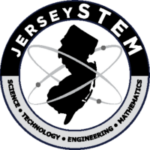🌐 The path from dreams to success does exist. May you have the vision to find it, the courage to get on to it, and the perseverance to follow it. 🚀
In the city of Karnal, Haryana, India, a young girl, Kalpana Chawla, would often gaze at the sky, captivated by the stars in the sky. She would one day turn that childhood wonder into reality, becoming the first woman of Indian origin to travel to space —and inspiring countless dreamers around the world.
Early Life and Education
Kalpana Chawla didn’t grow up in a world that made it easy for girls to dream of space. Born in 1962 in Karnal, India, to a family that had resettled after the Partition, she was surrounded by voices that told her to be practical—to become a teacher, or maybe a doctor. Aerospace engineering wasn’t considered a path for girls. But Kalpana was drawn to the skies. She excelled in school, driven by a quiet determination that set her apart. Refusing to be limited by expectation, she left home to pursue her passion, eventually earning a Ph.D. in aerospace engineering in the United States by 1988. Her story is proof of what early support and exposure to STEM can do—especially for girls bold enough to follow their curiosity, even when the world tells them not to.
NASA Career and Space Missions
Chawla began her career at NASA’s Ames Research Center after earning her Ph.D., focusing on powered-lift computational fluid dynamics. Her expertise and dedication led to her selection as an astronaut candidate by NASA in December 1994.
Her first space mission was STS-87 aboard the Space Shuttle Columbia in 1997, where she served as a mission specialist and primary robotic arm operator. During this mission, she conducted experiments and was involved in deploying the Spartan satellite.
Chawla’s second mission, STS-107, was a dedicated science and research flight that launched on January 16th, 2003. The crew conducted approximately 80 experiments over 16 days, covering areas such as advanced technology development, life sciences, and materials research.
Legacy She Left Behind
On February 1st, 2003, the Space Shuttle Columbia broke apart during re-entry into Earth’s atmosphere, resulting in the loss of all seven crew members, including Chawla.
However, Chawla’s legacy continues to inspire. She was posthumously awarded the Congressional Space Medal of Honor, the NASA Space Flight Medal, and the NASA Distinguished Service Medal. Educational institutions, scholarships, and even a Cygnus spacecraft—the S.S. Kalpana Chawla—have been named in her honor, ensuring that her contributions to space exploration and her role as a trailblazer for women in STEM are never forgotten.
Dr. Kalpana Chawla’s journey from a small town in India to the vast expanse of space serves as a testament to the power of dreams and determination. Her story continues to motivate aspiring scientists and engineers around the world.
“When you look at the stars and the galaxy, you feel that you are not just from any particular piece of land, but from the solar system.”
At JerseySTEM, we are inspired by stories like Kalpana Chawla’s—stories that remind us of what’s possible when girls are given the tools and encouragement to pursue science. By offering free, hands-on STEM education to middle school girls in underserved communities, JerseySTEM seeks to nurture the next generation of engineers, scientists, and astronauts who will shape our future—regardless of where they come from.
Volunteer with us this fall to help inspire the next generation of innovators and changemakers!
What you can do:
- Volunteer with JerseySTEM to promote STEM equity. Apply through this link to become program instructors: https://docs.google.com/forms/d/1E2cWGJG9p0ucJn6U2BQvgkV5ABHz96BSP3Dln4ePp0M/viewform?ts=67a67315&edit_requested=true
- Advocate for inclusive policies and disaggregated data collection in your local schools.
- Mentor a student from an underrepresented AAPI background.
- Support efforts that amplify diverse voices and broaden the scope of who belongs in STEM.
At JerseySTEM, we envision a future where all young people—regardless of race, gender, or zip code—can see themselves in science, technology, engineering, and math. That future starts by telling the full story, and ensuring no community is left behind in the push for equity.
Other Reference: https://www.nasa.gov/wp-content/uploads/2020/09/chawla_kalpana.pdf









